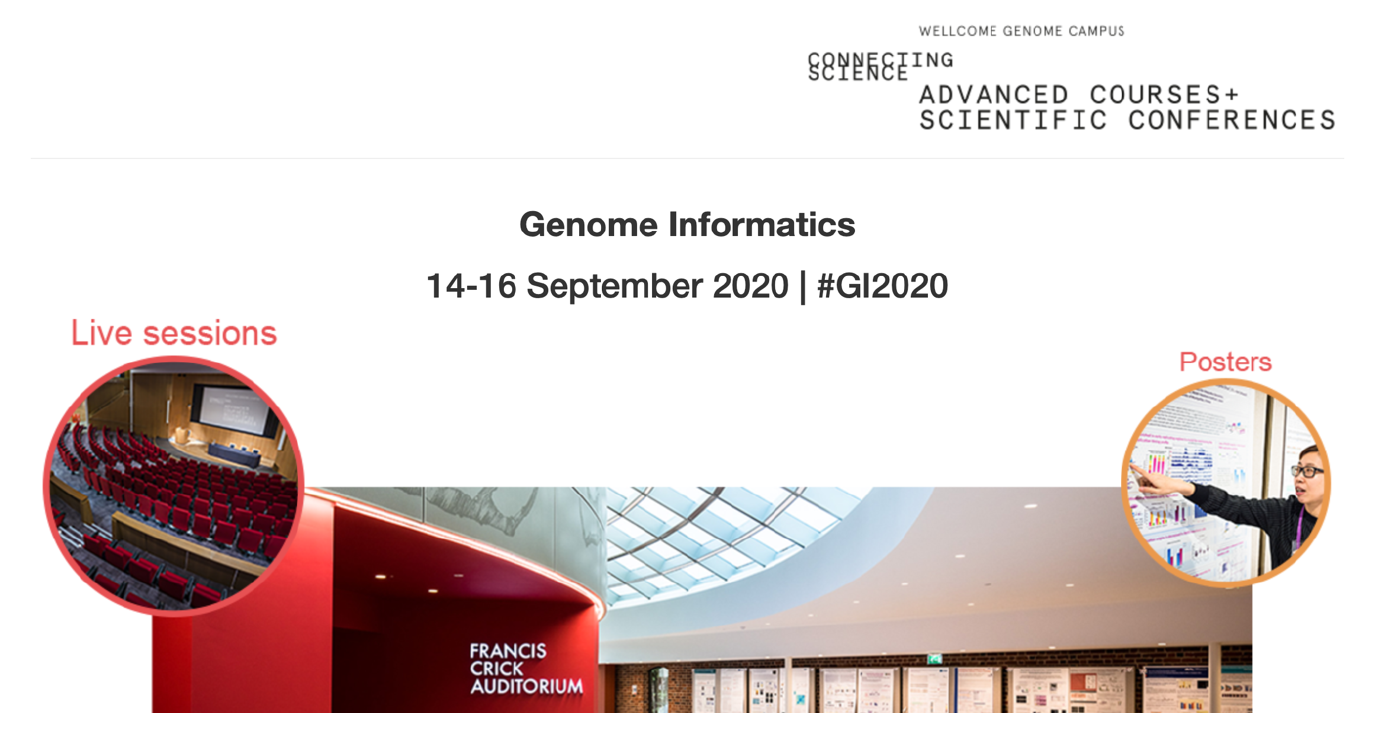Wellcome Genome Campus / September 14-16, 2020
I had a great pleasure to become a participant in the scientific conference "Genome Informatics 2020", which was organized by Wellcome Genome Campus and was held on 14-16th September. Like most events in connection with the current circumstances and the pandemic, this conference was held in an online format, which, I think was a challenge both for the participants themselves and for the organizers.
I can confidently say that this event exceeded all my expectations: the organization was held at the highest level, even the smallest details were taken into account. All participants had the opportunity to find all the necessary links to the online broadcast, view the entire schedule of the event, view the posters, chat with other participants and much more. So I would like to express my deep gratitude to the organizers, who made this conference happen in such a great way. Despite the lack of live communication, the online format of such events certainly has its advantages: it was very comfortable to listen to the speakers and take notes at the same time; if necessary, it was possible to stop the broadcast and watch the chosen fragment again.
During these three days (seemingly such a short time), I received a huge amount of new and valuable information from the best experts and professionals in the field of Genome Informatics. In his introduction, Ewan Birney (EMBL-EBI, UK) noted that the term Genome Informatics equates to Biomolecular Data Science - the future of all science and a very comprehensive industry, what speakers have repeatedly proved with their reports. It was a completely new discovery for me how versatile and diverse the scope of genome informatics can be: from the most common sequencing techniques to highly focused research in the field of ethology and zoology, which was presented by Xue Li, University of Massachusetts Medical School, USA with her work “Investigating the genetics of social behavior in wolf-dog hybrids” and Kerry McGowan, Washington State University, USA “Identifying regulatory mechanisms affected by hydrogen sulfide in an extremophile fish”.
Such a huge potential of genome informatics, of course, is associated with the constant development and updating of knowledge and methods: what yesterday was a new discovery, today will be replaced by a completely different improved technology. For me, in this context, the report of Pall Melsted, University of Iceland - “Fast and modular processing of single cell RNA-seq datasets with kallisto and bustools” - in which he presented new approaches of data processing, was very interesting. In connection with the high level of complexity of the information that was presented at the conference, I would also like to note the great advantage of the opportunity to ask questions in the live chat after each session.
Summing up all of the above, I want to note that participation in this conference was an amazing experience for me, from which I gained a huge amount of valuable knowledge and which helped me to strengthen and expand my awareness in modern “trends” of genome informatics. I want to express my deep gratitude to the organizers of this event, each of the speakers, and especially to the U.S.-Ukraine Foundation Biotechnology Initiative, for giving me the opportunity to be a participant in this conference.
- Yelyzaveta Kornieieva, student at Taras Shevchenko National University of Kyiv

